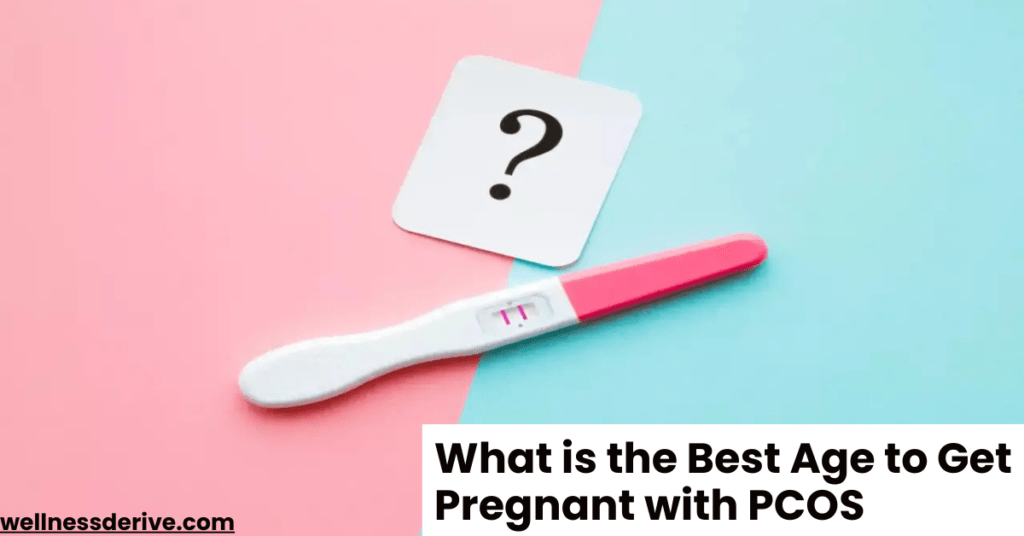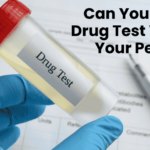Polycystic Ovary Syndrome (PCOS) is one of the most common causes of infertility, affecting up to 1 in 10 women of reproductive age. If you’ve been diagnosed with PCOS and are thinking about starting a family, timing can feel overwhelming. One of the most important questions you might ask is, “When is the best age to get pregnant with PCOS?” This guide explores how age affects fertility in women with PCOS and provides practical tips to help improve your chances of conception.
Understanding PCOS and Its Effects on Fertility
PCOS affects hormone levels and ovulation, making it harder to conceive. This section explains how PCOS impacts fertility and why timing matters.
What Is PCOS?
PCOS is a hormonal disorder that affects how the ovaries function. Women with PCOS often experience irregular or absent menstrual cycles, excess androgen levels (male hormones), and polycystic ovaries (enlarged ovaries containing small follicles that fail to mature). These symptoms can interfere with ovulation, making it more difficult to conceive naturally.
Why PCOS Makes Timing Important
Unlike women without PCOS, those with the condition may not ovulate regularly, which complicates the timing of conception. Additionally, PCOS is often associated with insulin resistance and inflammation, both of which can impact egg quality and pregnancy outcomes. As women age, egg quality naturally declines—making it even more important to consider the optimal timing for pregnancy.
The Best Age to Get Pregnant with PCOS Explained
For women with PCOS, the best age to get pregnant is typically in their 20s to early 30s. This age range is associated with higher fertility rates and better ovarian reserve.
Why Is This the Best Age?
- Ovarian Health: Women in their 20s and early 30s generally have healthier eggs, improving the chances of conception.
- Lower Risk of Complications: Younger women with PCOS are less likely to face complications like gestational diabetes or preeclampsia compared to older women.
Fertility in Your 30s
Many women with PCOS successfully conceive in their 30s, especially with proper management. However, it’s important to note that fertility begins to decline gradually around age 32 and more significantly after age 35. For women with PCOS, this decline may be more noticeable due to preexisting ovulatory challenges. That said, many women in their 30s benefit from targeted fertility support such as lifestyle changes, medications like letrozole or clomiphene, and monitoring ovulation with the help of a reproductive endocrinologist.
Pregnancy After Age 35 with PCOS
While getting pregnant after 35 with PCOS is entirely possible, it often comes with more challenges. Both egg quantity and quality decline with age, and PCOS-related complications such as insulin resistance, obesity, or endometrial thickening may become more pronounced. Women in this age group should consider early consultation with a fertility specialist. Assisted reproductive technologies (ART) like IUI or IVF may be recommended to increase the chances of success.
Can a Woman with PCOS Get Pregnant Later in Life?
Yes, women with PCOS can still conceive in their late 30s and early 40s. However, fertility naturally declines with age, and additional treatments may be necessary to support conception.
Also read: Does Female Masturbation Cause PCOS?
Can Women with PCOS Get Pregnant Naturally?
Many women with PCOS can conceive naturally by managing their symptoms and optimizing their health. Here’s how:
1. Lifestyle Modifications
- Maintain a Healthy Weight: Losing even 5-10% of body weight can improve ovulation.
- Exercise Regularly: Moderate exercise helps regulate hormones.
- Eat a Balanced Diet: Focus on whole foods, lean proteins, and low-glycemic-index carbohydrates.
2. Monitor Ovulation
Tracking ovulation can help identify the most fertile days. Women with irregular periods may need ovulation predictor kits or basal body temperature tracking.
3. Manage Stress
Stress can worsen PCOS symptoms and hinder conception. Practices like yoga, meditation, and deep breathing can help.
4. Supplements and Medications
- Metformin: Helps manage insulin resistance and improves ovulation.
- Clomiphene Citrate: Often prescribed to stimulate ovulation.
How Long Does It Take to Get Pregnant with PCOS?
The time it takes to conceive with PCOS varies:
- Women managing their symptoms may conceive within 6-12 months.
- Others may require fertility treatments, which can extend the timeline.
Tips to Boost Fertility with PCOS
Regardless of age, there are effective steps you can take to boost fertility when living with PCOS. Start with a balanced diet rich in whole foods, fiber, and healthy fats, which can help regulate insulin and support hormonal health. Regular physical activity—especially strength training and low-impact cardio—can also enhance fertility.
In some cases, supplements like inositol, vitamin D, and omega-3s may support ovulatory function. Tracking your ovulation with apps, basal body temperature (BBT), or ovulation predictor kits can also help time intercourse more accurately.
1. Consider Fertility Treatments
- Clomid or Letrozole: Effective for inducing ovulation.
- IVF (In Vitro Fertilization): An option for women who don’t respond to other treatments.
2. Hormonal Therapy
Balancing hormones through prescribed medication can regulate periods and improve ovulation.
3. Focus on Overall Health
- Quit smoking and reduce alcohol intake.
- Address any underlying health conditions like thyroid disorders.
Also read: What Size of Ovarian Cyst is Dangerous
When to See a Fertility Specialist
If you’ve been trying to conceive for 6–12 months without success, it’s time to consult a fertility specialist—especially if you’re over 35 or have additional risk factors. A specialist can assess your ovulation, hormone levels, and reproductive health to create a personalized treatment plan. Early support improves your chances of a successful pregnancy and reduces the emotional stress of trying to conceive.
FAQS about Best Ideal Age to Get Pregnant with PCOS
Can a Woman with PCOS Get Pregnant Without Treatment?
Yes, women with PCOS can conceive without medical intervention by managing symptoms, tracking ovulation, and maintaining a healthy lifestyle.
Can I have a baby at 35 with PCOS?
Yes, women with PCOS can conceive at 35. However, fertility declines with age, so lifestyle changes and possible medical assistance may be needed.
What is the easiest way to get pregnant with PCOS?
Maintaining a healthy weight, tracking ovulation, and using ovulation-inducing medications like Clomid can make conception easier.
Is PCOS a high-risk pregnancy?
Yes, PCOS increases the risk of complications like gestational diabetes and preeclampsia, but proper prenatal care can mitigate these risks.
Getting pregnant with PCOS after 30
It’s possible to conceive after 30 with PCOS by managing symptoms, monitoring ovulation, and seeking fertility treatments if necessary.
How to get pregnant with PCOS quickly naturally
Focus on a balanced diet, regular exercise, stress management, and tracking ovulation to enhance natural fertility.
Conclusion
For women with PCOS, the best age to get pregnant is typically in their late 20s to early 30s, when fertility rates are higher, and health risks are lower. While PCOS can make conception more challenging, many women achieve successful pregnancies through lifestyle changes, medical treatments, and proper support.
If you’re trying to conceive with PCOS, consult your healthcare provider to create a tailored plan that maximizes your chances of a healthy pregnancy. With the right guidance, it’s entirely possible to overcome the challenges of PCOS and start your journey to parenthood.
Disclaimer: The content on Wellness Derive is for informational purposes only and not a substitute for professional medical advice, diagnosis, or treatment. Always consult a healthcare provider for medical concerns.



